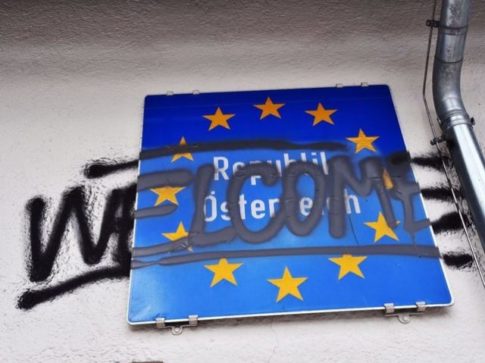– EU’s Emergency Migrant Crisis Border Controls Will Expire Next Month:
The temporary internal border controls enacted to help mitigate the migrant crisis are set to expire in November, and they are unlikely to extended despite several countries requesting an extension.
EU Interior Commissioner Dimitris Avramopoulos has come out saying it is unlikely the interior border controls in the European Union’s Schengen area will continue after they are set to expire in November. The controls were enacted in order to halt the massive flows of hundreds of thousands of migrants that began last year.
Some countries like Denmark would like to see the control continued but unless there is a valid reason, said the commissioner, the controls are likely to expire reports Kurier.
Avramopoulos spoke in Brussels on Wednesday about the subject and specifically addressed the concerns of the Danes who wish to extend the internal border controls. On the subject of a possible extension he said, “If it is justified, it shall be granted, but we are not there yet.”
The Danes are also backed up by the Austrians who would like to see the controls extended. Austrian Interior Minister Wolfgang Sobotka also petitioned the Commissioner to extend the controls past the November deadline. Sobotka has become increasingly tough on border security since he assumed the office of Interior Minister this year.
Along with the border controls Commissioner Avramopoulos spoke of a possible visa deal with Tunisia in order for the government there to take back more deported migrants from places like Germany.
The German government has had a difficult time getting North African countries to take back citizens it has attempted to deport. The costs have risen in some areas to over 50,000 euros to deport one individual. Many North African countries have simply refused to cooperate and take back their nationals.
This new migrant deal with Tunisia, according to Avramopoulos, would function much in the same way as the European Union migrant deal with Turkey. The Tunisians would accept more of their nationals back while the European Union would lift visa restrictions for Tunisian nationals who want to visit or work in the EU.
The deal with Turkey has been fraught with problems since the outset and even though the deal has largely stopped the mass flow of migrants from Turkey into Greece, the visa liberalisation has so far not manifested into reality.
The Turkish government has repeatedly threatened to allow the migrants to leave the country for Europe if they do not get visa-free travel while the EU maintains that Ankara must meet certain demands first.
PayPal: Donate in USD
PayPal: Donate in EUR
PayPal: Donate in GBP
